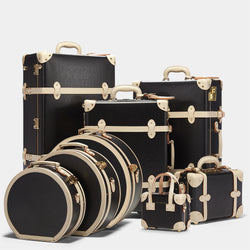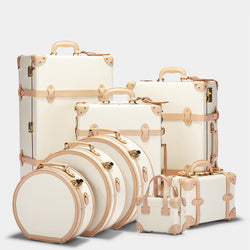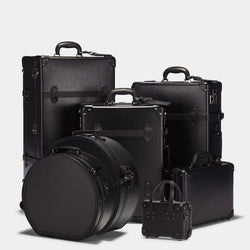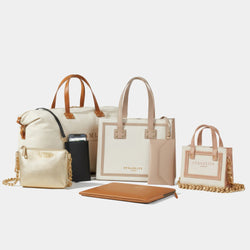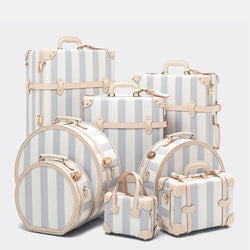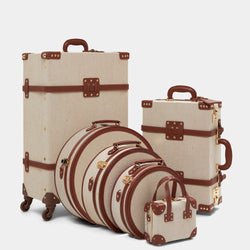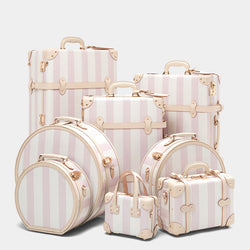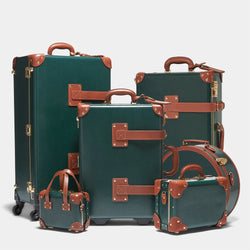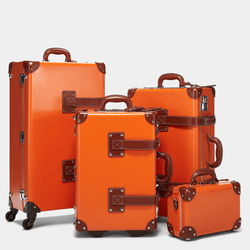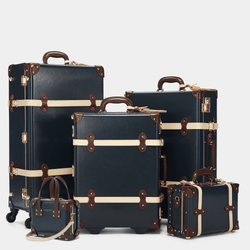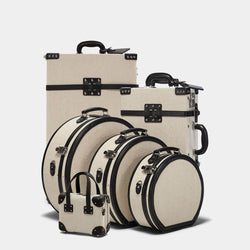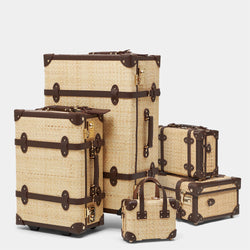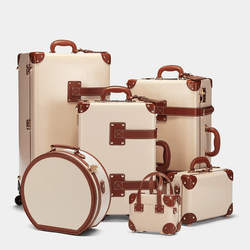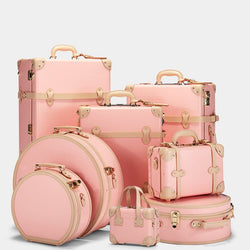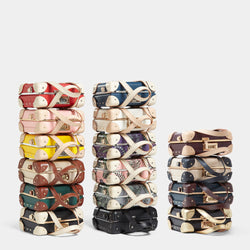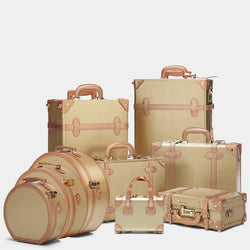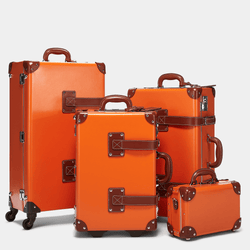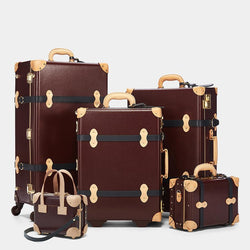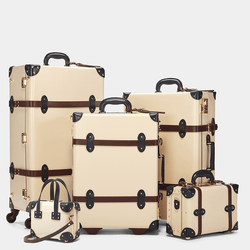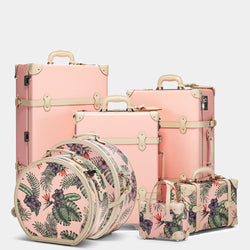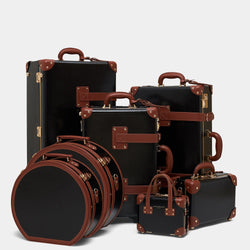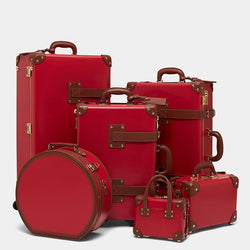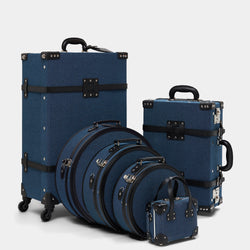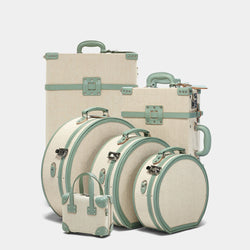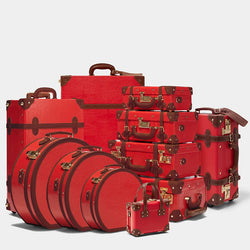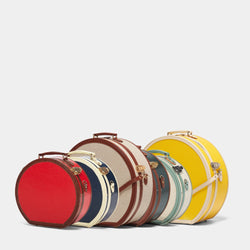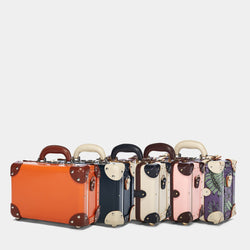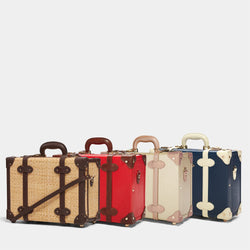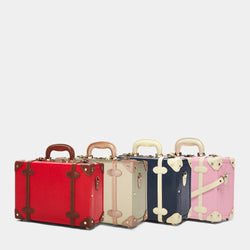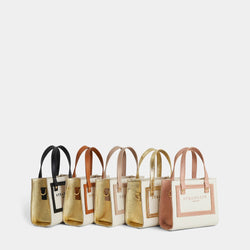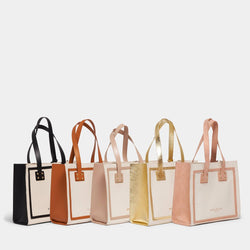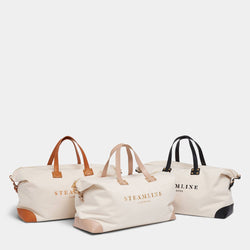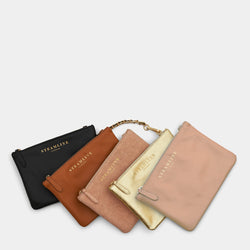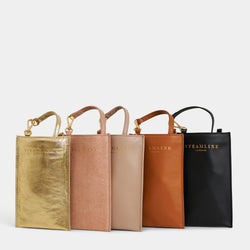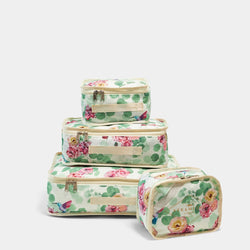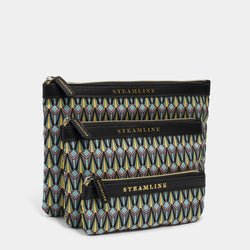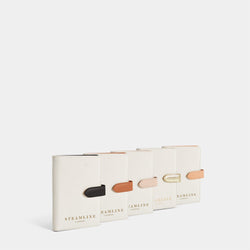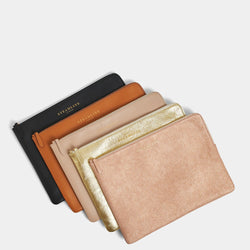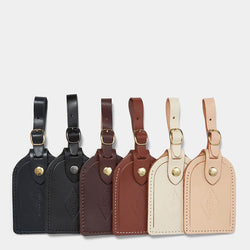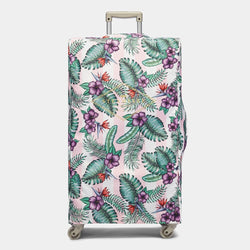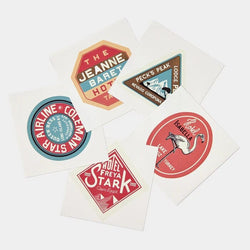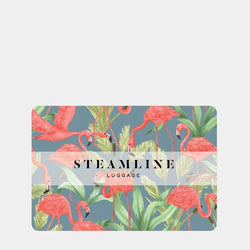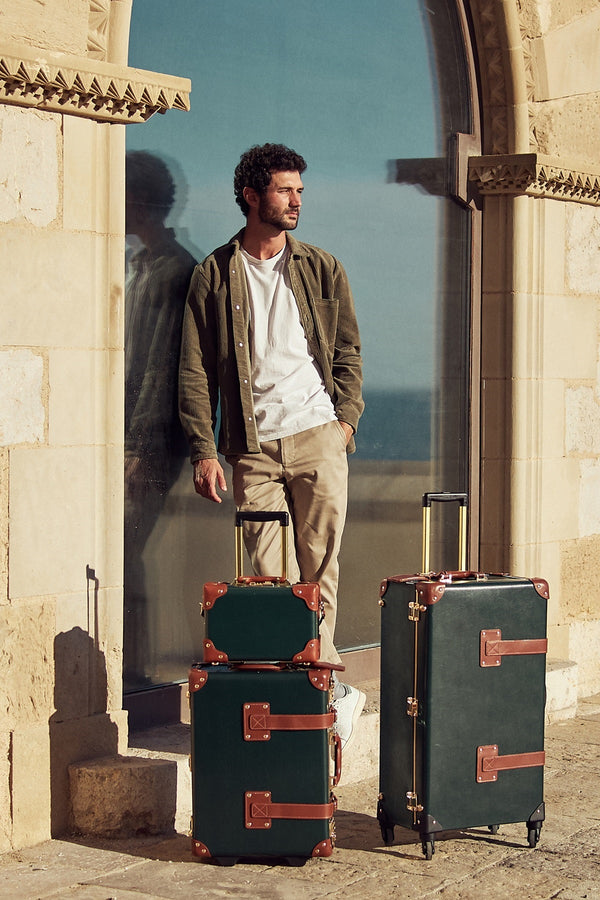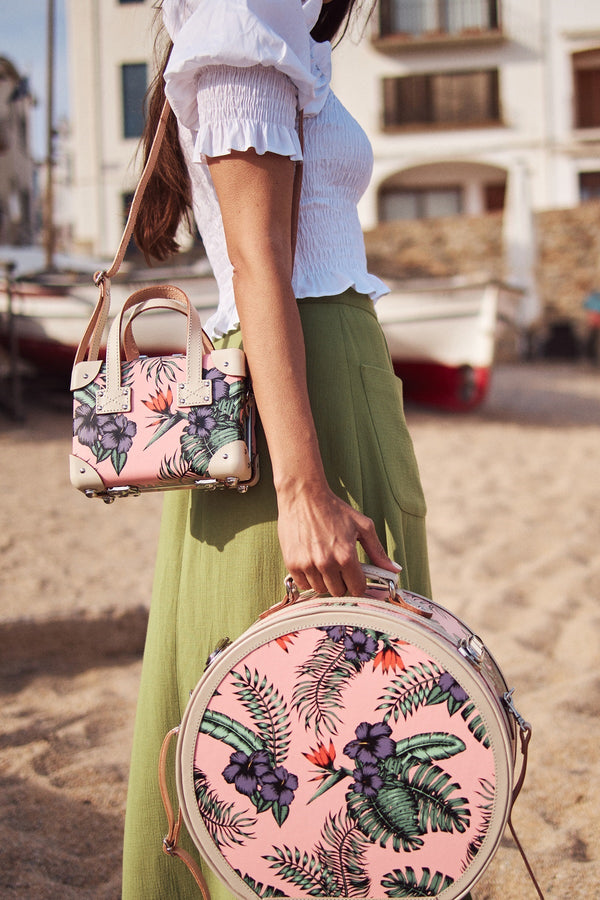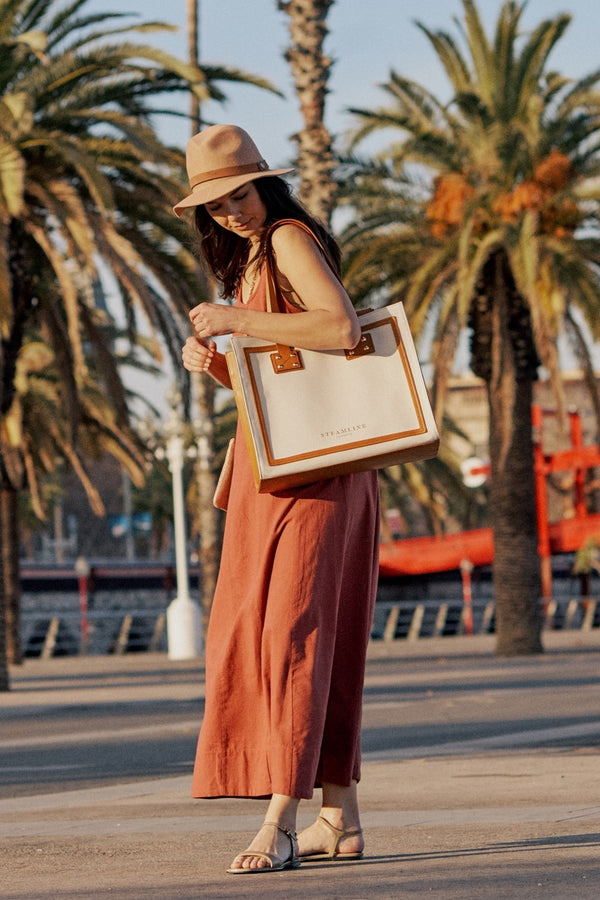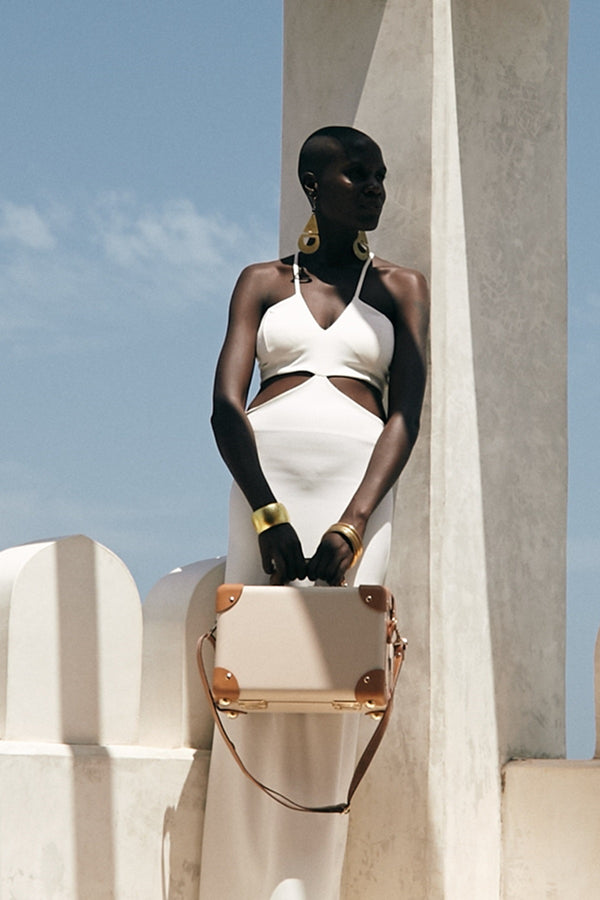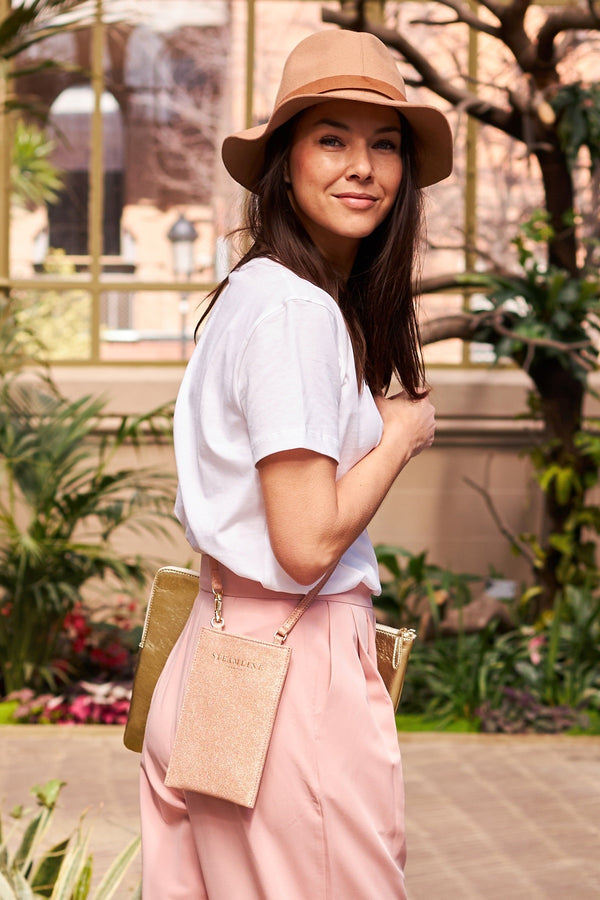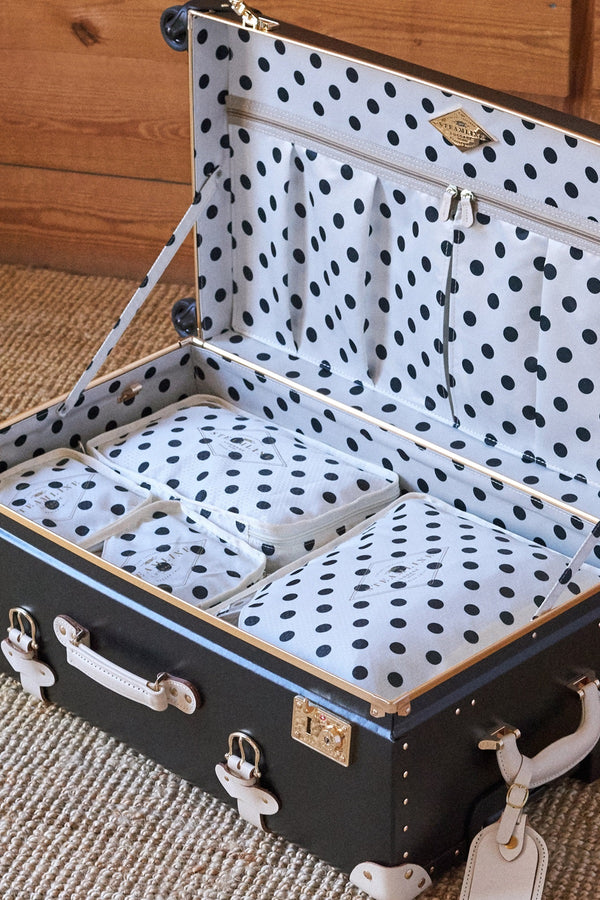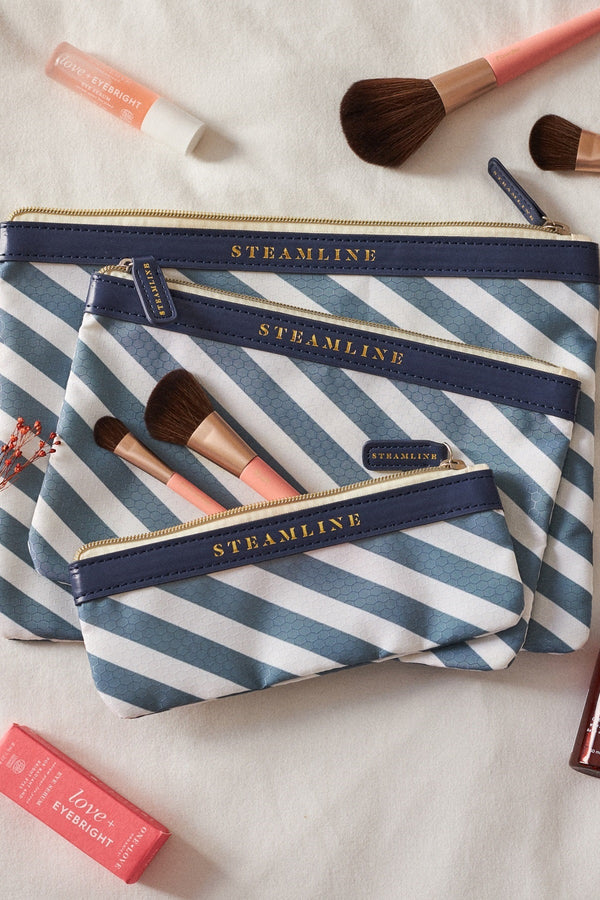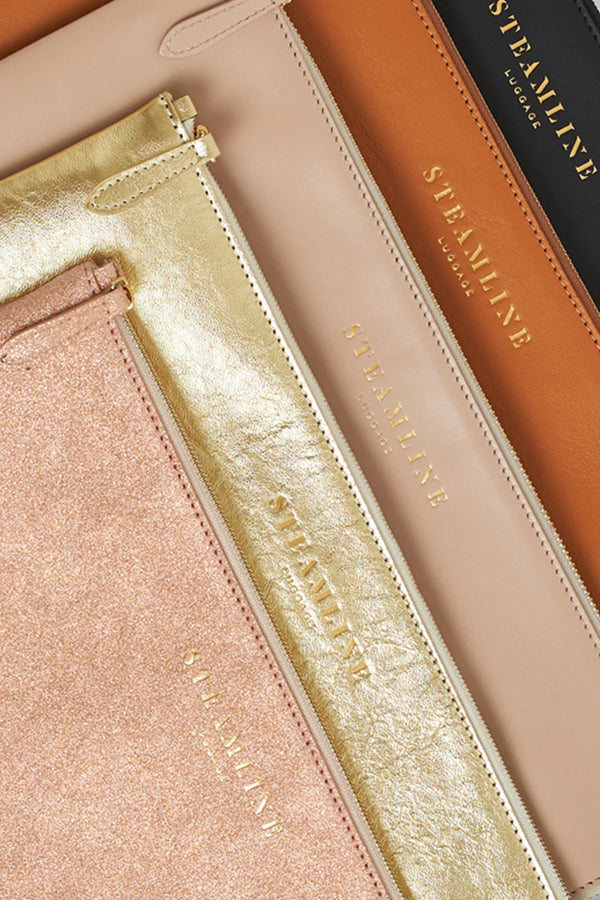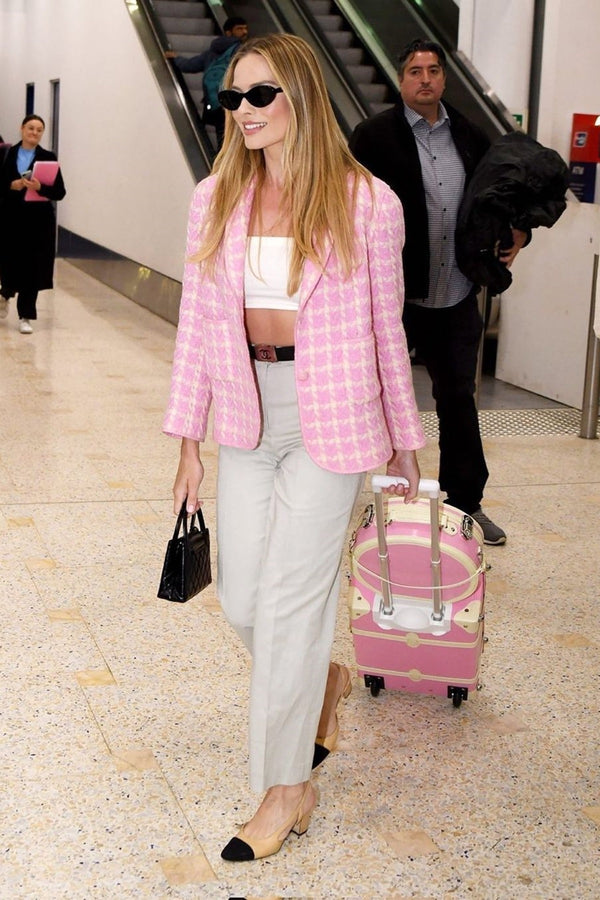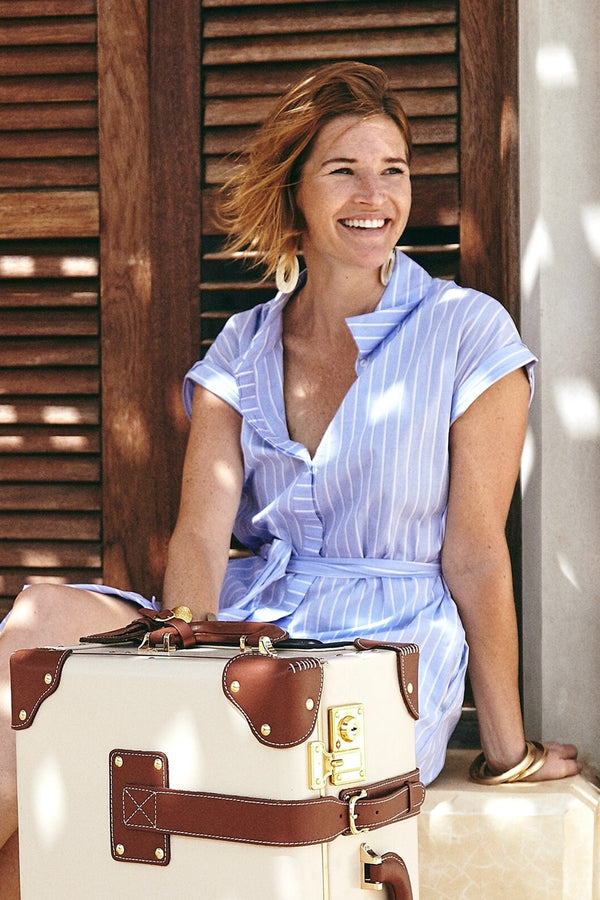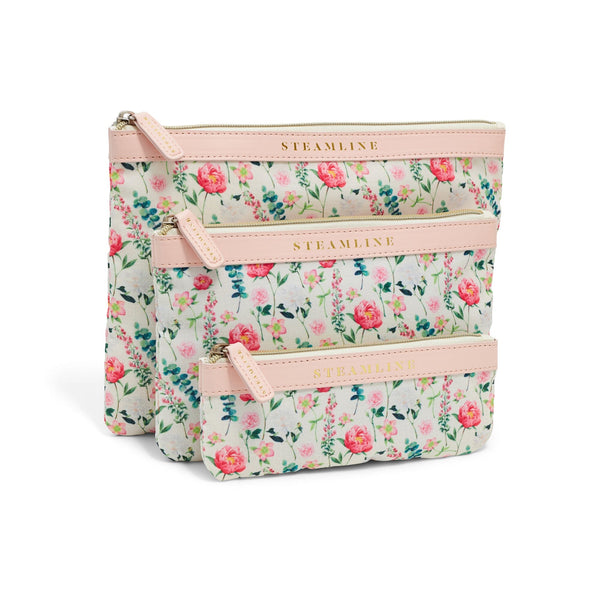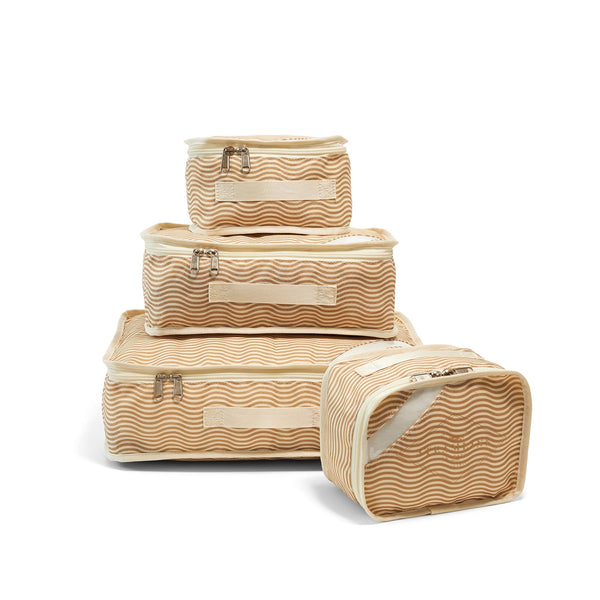Inspired By Tracy Foster - Founder, Mother, Intentionalist

Intent on visiting all continents by the age of 35, Tracy is not one to miss a goal. Here she and her husband Kmele visit continent seven, Antarctica, in 2015.
An interview with our founder, Sara Banks
Colleagues have been saying to me for years that I needed to meet Tracy—and how much I would like her. We finally got a chance to meet by Zoom rather than in person, which I wish we had done years ago! And if I already admired her work through her previous company ONA, I immediately felt camaraderie in SO MANY aspects of our lives. So enjoy this little sneak peek behind the creator of the most beautiful camera bags in the world, mother, and now busy consultant to brands in a variety of sectors. Meet Tracy Foster!
SB: As female founders, I appreciate that our journey isn’t always linear. I don’t know if it’s the same for you, but I didn’t grow up thinking, “I want to run my own business.” That wasn’t really a thing! Personally, I would never have considered business school. I started my first business (fashion accessories) as a means to an end and then founded SteamLine after noticing a gap in the market—creating something that I wanted to have—like it was for you. What was your path prior to starting your own business? Did you always want to be an entrepreneur?
TF: I did! I grew up admiring the entrepreneurial spirit and skills exhibited by my grandmother who started her own real estate brokerage firm in her 50s. She was such an inspiration to me, in so many ways – as a wife, mother, friend, and businesswoman. She was the kind of woman I aspire to be, and she ran her business with pure grace and integrity. I remember seeing her in her office, sifting through paperwork, or interacting with clients and thinking, “I want to do that!” I didn’t know exactly what that meant or what that would look like for me, but I knew I wanted to be a businesswoman and run my own company one day, too. My husband, Kmele, also started his own technology company at 19 years-old while we were dating and in undergrad at the University of Maryland. So in a lot of ways, I’d say I was surrounded by driven, entrepreneurial people, who I also happened to love and admire and be inspired by personally. I definitely think that their examples helped me feel confident that I, too, could succeed as an entrepreneur.

Tracy's entrepreneurial grandmother at her desk
SB: You started ONA after a trip to South Africa that made you want a stylish camera bag (don’t we all!) and you set out to create one shortly after. What inspired the design you settled on? And how did you choose to have them made in the Dominican Republic?
TF: I wanted to create a camera bag that was simple, stylish and discreet. And really, the goal was to create a bag that I’d want to wear even if it wasn’t designed to protect camera gear. We were very fortunate to find a manufacturer that had nearly 100 years of experience handcrafting fine leather bags and accessories. As soon as I met them, I knew we’d found a great partner both from a craftsmanship and a business relationship perspective.
SB: And was this idea fueled by you as a photographer—or was it more so seeing an opportunity? Did you ever work as a professional photographer or was it a passion hobby?
TF: I’ve never been a professional photographer. My love for photography began to grow around 2008 when I got my first DSLR camera as a gift from my mom and grandmother. I love that photography allows me to capture and relive everyday moments with my family and friends. I also get really excited about capturing memories while traveling specifically.
"If you’ve got an idea that you feel confident is viable, go for it! Register the business, buy the domain name, create the logo... start! Those small initial steps are actually very empowering and so important to helping you get the momentum needed to get your idea off the ground."
SB: I am so impressed you sold ONA to a private equity firm to grow your company. And you have gathered up a wonderful fan base, which leads to an amazing visual feast on your IG page, featuring many of your photographers' posts. Now that you are no longer full-time with the company, do you still get a buzz when seeing people get such joy from using a product you created?
TF: Absolutely! Few things are more rewarding than seeing your vision become a reality. It still doesn’t quite feel real to me when I see people out in the world wearing one of our bags. It’s pretty awesome. And hearing from people around the world in person or via email or social media who are truly enjoying something that you created is just so incredibly gratifying.

A favorite photo of an ONA bag—a well-worn Union Street messenger bag that Tracy's mother received in 2010 and still uses as her laptop bag!
SB: And as IG is so loved by photographers for obvious reasons, do you use it personally? What is your relationship like with social media personally and for business?
TF: I’d say my relationship with social media personally ebbs and flows. In some ways, I feel like it’s a really fun way to stay connected with friends and peers, and to discover new brands and products and communities and people. But on the flip side, it’s also really easy to get on Instagram and get sucked into what other people are doing in a way that makes me feel distracted and unproductive. For the first half of this year, I’d paused my personal account and it actually felt really nice to disconnect in that way. I’m ‘on’ for the time being, but I definitely feel like disconnecting from time to time – whenever I see fit – is a good idea and something I’ll do again.
SB: And now you are full-on consulting for other businesses. What is the part of building a business you love best? I can imagine it is wonderfully freeing and collaborative to work on growing a business that is not fully your own. Are you feeling the urge to get started on another project of your own yet?
TF: I love defining a vision and then doing the work to make that vision a reality. I’d say my favorite part of building a business is defining and creating the brand; I love clarifying who the target audience is and creating a narrative—visually and verbally—that resonates with that audience. Over the past few years, it’s been really fun to work with clients—from fashion and accessories brands to food and beverage brands—to do just that. I definitely have felt the urge to start another project of my own. I don’t have anything solid figured out just yet, but I’ve definitely had some ideas percolating!

Tracy with her Starlet cases and, the real star, her three-year-old daughter Lia.
SB: Since you sold ONA, you have been busy growing a family. Your daughter is nearly 3! Your timing couldn’t have been better planned, shifting all your attention from business to family. (I wish I had had the same foresight!) Sometimes I feel like I am being torn between business and kids and not paying good enough attention to either. But equally, I am not sure I could be a stay-at-home mother without having the community/collaborative engagement of the team. You seem to be striking the right balance with your consulting business. For other entrepreneurial mothers, what advice would you give in maintaining the balance between raising a business and raising children?
TF: Ah, balance... It’s such a tricky concept. Rather than seeking to obtain some perfect balance between work and life with my family, I try to just be very intentional with my time and also about defining what I want in my life and what steps I can take to achieve that. I’m a big believer in defining your goals and dreams, and then developing clear, actionable plans aimed at helping you achieve them.
So for me, I knew that once I had my daughter, having a high degree of flexibility in terms of my work schedule would be very important. As an independent consultant, I find that this is achievable for me right now and I love that. At some point, I think I’ll want to start another project or join a team. When that time comes, I expect that I’ll have to define what I want that to look like and what will work for me and my family.
At the end of the day, I think it’s all about being intentional and thoughtful about what’s most important to you and what you want your life to look and feel like at a high-level—really defining your goals and dreams. And from there, developing specific plans and processes that help you to achieve those goals and dreams, knowing that nothing is perfect, and things don’t always work out as planned, and challenges are inevitable. But to the extent that you can act with intention and create a life that you truly love and are proud of, I’d say it’s worth every effort.

Tracy and Kmele in South Africa, 2010
SB: Can you give advice to anyone who wants to start their own business? Tips on how you got started, anything you think was essential to getting off the ground? Or things you wish you had done differently the first time around—and likewise, things you felt you nailed?!
"I think it’s all about being intentional and thoughtful about what’s most important to you and what you want your life to look and feel like at a high-level – really defining your goals and dreams. And from there, developing specific plans and processes that help you to achieve those goals and dreams, knowing that nothing is perfect, and things don’t always work out as planned, and challenges are inevitable."
TF: If you’ve got an idea that you feel confident is viable, go for it! (Here’s an article I wrote about product viability nine (!) years ago and still recommend.) Register the business, buy the domain name, create the logo... start! I think starting is the hardest part for a lot of people. But those small initial steps are actually very empowering and so important to helping you get the momentum needed to get your idea off the ground.
I also advise beginning with the end in mind. I’ve found a lot of entrepreneurs that I talk with don’t do this and in hindsight wish that they had. Of course nothing is guaranteed and your plans or the market may change, but it’s helpful to think through an exit strategy from the very beginning. Do you think you’d like to build a lifestyle business that you’ll run for the next 10, 20, 30 years? What might you like to do after that? Do you want to build a family business to pass on? Or one that you can sell? The answers will help you clarify how you approach your strategic planning and business processes.
And finally, be resilient and find your community. Starting and running a business is not easy. You’ll hit road bumps. You’ll make mistakes. You’ll need to be resilient to succeed. And having a community around you—whether its friends, family members, mentors, other entrepreneurs or all of the above—to help you through the difficult seasons and celebrate the victories with you is so, so important.
SB: Did you get to travel to the Dominican Republic very often? And let’s talk about travel! (Remember those days?) Do you have the travel bug? Where are places on your bucket list? (Please say Ireland!) And when you travel, do you need to pack it all in and see everything (needing a holiday after your holiday), or do you go to recharge? Perhaps a bit of both? Do you have a travel philosophy?
TF: I did! I used to travel to the DR quarterly for product development. I really miss those trips (and all trips!). One of my goals was to travel to every continent by the time I was 35 and I’m so happy that I was able to achieve that. I love, love, love to travel and have missed it very much.
Ireland is definitely on my list! It looks so beautiful. Since we have a toddler, I’ve imagined visiting more Caribbean islands in the coming years given that we live in New York City and many of them are easy to get to; so Turks & Caicos, Anguilla, and Aruba are on the list. Whenever we can go on a big international trip, I’d also really like to visit Kenya, Tanzania, Croatia, Vietnam and Bali as well.
In terms of a travel philosophy, I am definitely a planner who tries to achieve a nice balance of adventure and relaxation. So I’ll scope out all the top, must-see activities and destinations, build those into the schedule, and also build in “free” days to just relax and take it all in. Thankfully, my husband and I are similar in this way and we’ve always traveled really well together.
SB: I get the feeling you are really good at forward planning and setting yourself clear goals—and extraordinary at achieving them. Where do you see yourself in the next 3 to 5 years?
TF: Oh man. I am a goal-setter, and had you asked 5 years ago I could have given you a very clear, bulleted list with target dates (smiles). But honestly, we have so many things up in the air right now that I can’t say I have a crystal-clear vision for 5 years from now. My family, community and health are my highest priorities, so my plan is to continue to nurture those areas of my life to the best of my ability, and to just focus on being grateful for all the many blessings—big and small—that I am gifted every day.
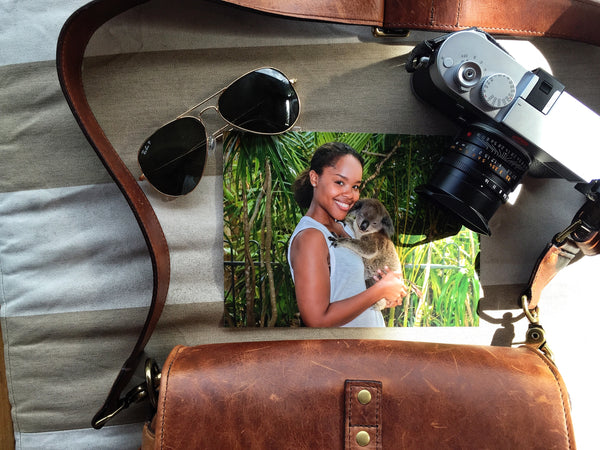
Souvenirs from Australia, 2015
"Be resilient and find your community. Starting and running a business is not easy. You’ll hit road bumps. You’ll make mistakes. You’ll need to be resilient to succeed. And having a community around you to help you through the difficult seasons and celebrate the victories with you is so, so important."
Further Fascinating Reading
- Explore SteamLine's Top Road-Trip Tips and Travel Guide.
- Embrace the SteamLine Effect bringing travelers together on the road.
- Learn about how to pack simply and easily with SteamLine Luggage.
- See what makes a SteamLine case a SteamLine with our materials guide.
- Learn about how to protect your beautiful luggage on the road with SteamLine’s Coordinated Ripstop Covers.

